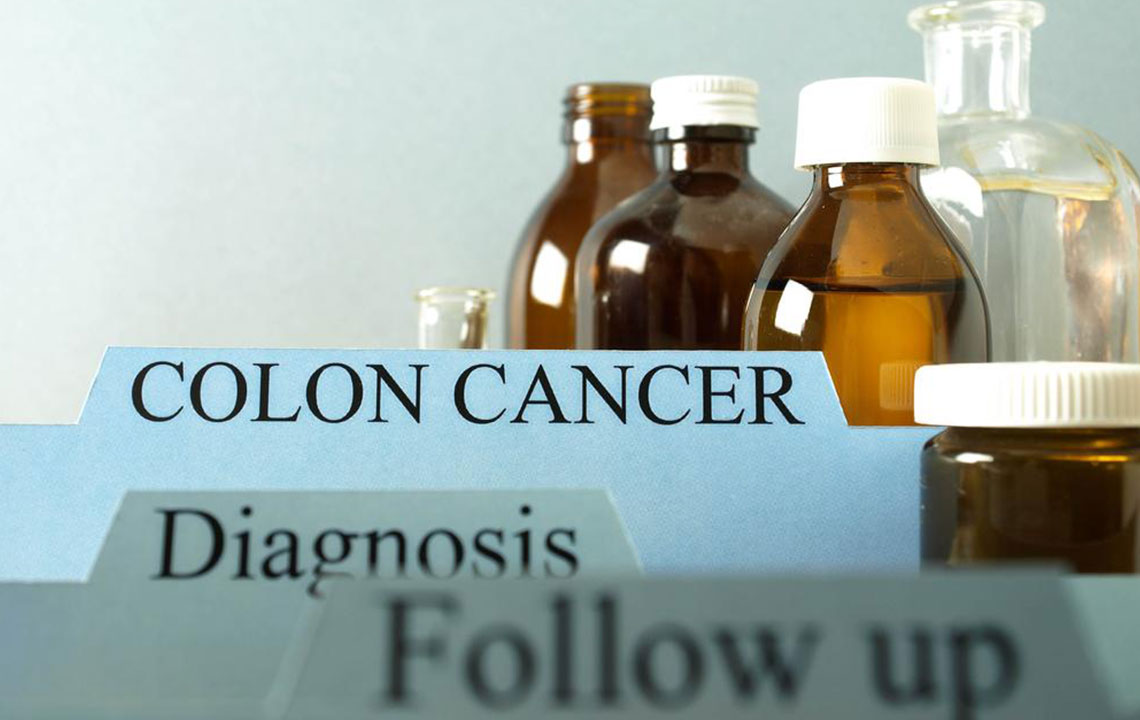Comprehensive Guide to Colon Cancer: Understanding Causes, Early Signs, and Prevention Strategies
This comprehensive guide provides in-depth insights into colon cancer, highlighting its causes, early signs, diagnostic methods, and prevention strategies. Understanding these aspects helps individuals take proactive steps to reduce their risk, enabling early detection and better treatment outcomes. Lifestyle changes, regular screenings, and awareness are key to combating this prevalent disease effectively.

Comprehensive Guide to Colon Cancer: Understanding Causes, Early Signs, and Prevention Strategies
Colon cancer, also known as colorectal cancer, is a significant health concern worldwide, ranking among the top causes of cancer-related deaths. It originates in the large intestine, which is critical for processing waste and absorbing nutrients necessary for overall health. The disease develops when abnormal tissue growths, often starting as benign polyps, begin to grow in the lining of the colon or rectum. Over time, some of these polyps can become malignant tumors, potentially spreading and causing severe health complications. Understanding the causes, recognizing the early warning signs, and adopting preventive measures are vital in reducing the risk associated with colon cancer.
Understanding the Causes of Colon Cancer
The definitive cause of colon cancer remains complex and multifactorial, involving genetic, environmental, and lifestyle factors. Although ongoing research continues to uncover details, several notable risk factors have been identified that can help individuals understand their personal risk profile.
Genetic and Family History
Genetic Predisposition: Family history plays a significant role; individuals with close relatives who have had colon polyps or colorectal cancer are at increased risk.
Inherited Syndromes: Rare genetic syndromes like familial adenomatous polyposis (FAP) and Lynch syndrome (hereditary non-polyposis colorectal cancer) significantly elevate the risk of developing colon cancer at a younger age.
Inflammation and Digestive Disorders
Chronic inflammatory bowel diseases, particularly Crohn’s disease and ulcerative colitis, are linked to a higher incidence of colon cancer due to ongoing inflammation damaging the colon lining.
Metabolic and Lifestyle Factors
Conditions such as type 2 diabetes and insulin resistance are correlated with an increased risk, possibly due to hormonal and metabolic disruptions associated with these conditions.
Unhealthy lifestyle habits—including a diet high in processed foods, red and processed meats, insufficient fiber, and excess fat—contribute substantially to risk escalation.
Extrinsic factors like smoking, heavy alcohol consumption, and physical inactivity are also recognized as significant contributors.
Age and Demographic Factors
Although colon cancer can present at any age, the majority of cases are diagnosed in individuals over the age of 50. Age remains one of the most critical risk factors, emphasizing the importance of proactive screening in older adults.
Recognizing the Symptoms of Colon Cancer
Rectal Bleeding: One of the earliest and most noticeable symptoms, bleeding can be visible in stool or detected via screening tests. It's crucial to seek medical attention promptly.
Alterations in Bowel Habits: Persistent diarrhea, constipation, or a noticeable narrowing of stools are common warning signs that require evaluation by healthcare professionals.
Abdominal Discomfort: Continuous cramps, bloating, or pain in the lower abdomen often occur when tumors obstruct parts of the colon or cause irritation.
Anemia and Fatigue: Hidden blood loss from tumors can lead to anemia, resulting in fatigue, weakness, and shortness of breath.
Other Symptoms: Unexplained weight loss, persistent lower abdominal discomfort, or a feeling of incomplete bowel evacuation should prompt medical assessments.
How Is Colon Cancer Diagnosed?
Blood Tests: Although no specific blood test can conclusively diagnose colon cancer, tests such as complete blood count (CBC) can reveal anemia caused by bleeding, and liver function tests may indicate metastasis.
Colonoscopy: The gold standard for detection, this procedure involves inserting a flexible tube with a camera into the rectum to visually inspect the colon and rectum. Biopsies can be taken during this process for pathological examination.
Barium Enema: An imaging technique where barium dye is introduced into the colon, followed by X-ray imaging, helps identify abnormal growths or strictures.
Imaging Methods: CT colonography (virtual colonoscopy) provides detailed visualization of the entire colon and surrounding tissues, assisting in early detection of tumors or polyps.
Preventive Strategies to Reduce Colon Cancer Risk
Regular Screening: Initiating colon cancer screening at age 45 or earlier for those with higher risk helps detect precancerous polyps or early-stage tumors, significantly improving treatment outcomes. Colonoscopy remains the most effective screening method.
Healthy Dietary Habits: Eating a diet rich in high-fiber foods such as fruits, vegetables, and whole grains supports colon health. Limiting red and processed meats, reducing saturated fats, and increasing intake of antioxidants have been linked to lower risk.
Active Lifestyle: Engaging in regular physical activity helps maintain healthy weight, improves digestion, and reduces colon cancer risk.
Avoidance of Tobacco and Excess Alcohol: Smoking cessation and limiting alcohol intake are crucial preventive measures, given their association with increased cancer risk.
Management of Underlying Conditions: Proper treatment of inflammatory bowel diseases and metabolic disorders can decrease the likelihood of malignant transformation in the colon.
In summary, colon cancer remains a major health concern worldwide, but early detection and lifestyle modifications can substantially reduce risks. Awareness of the causes, symptoms, and available screening methods empowers individuals to take proactive steps toward prevention and early diagnosis, ultimately saving lives and improving quality of life.





